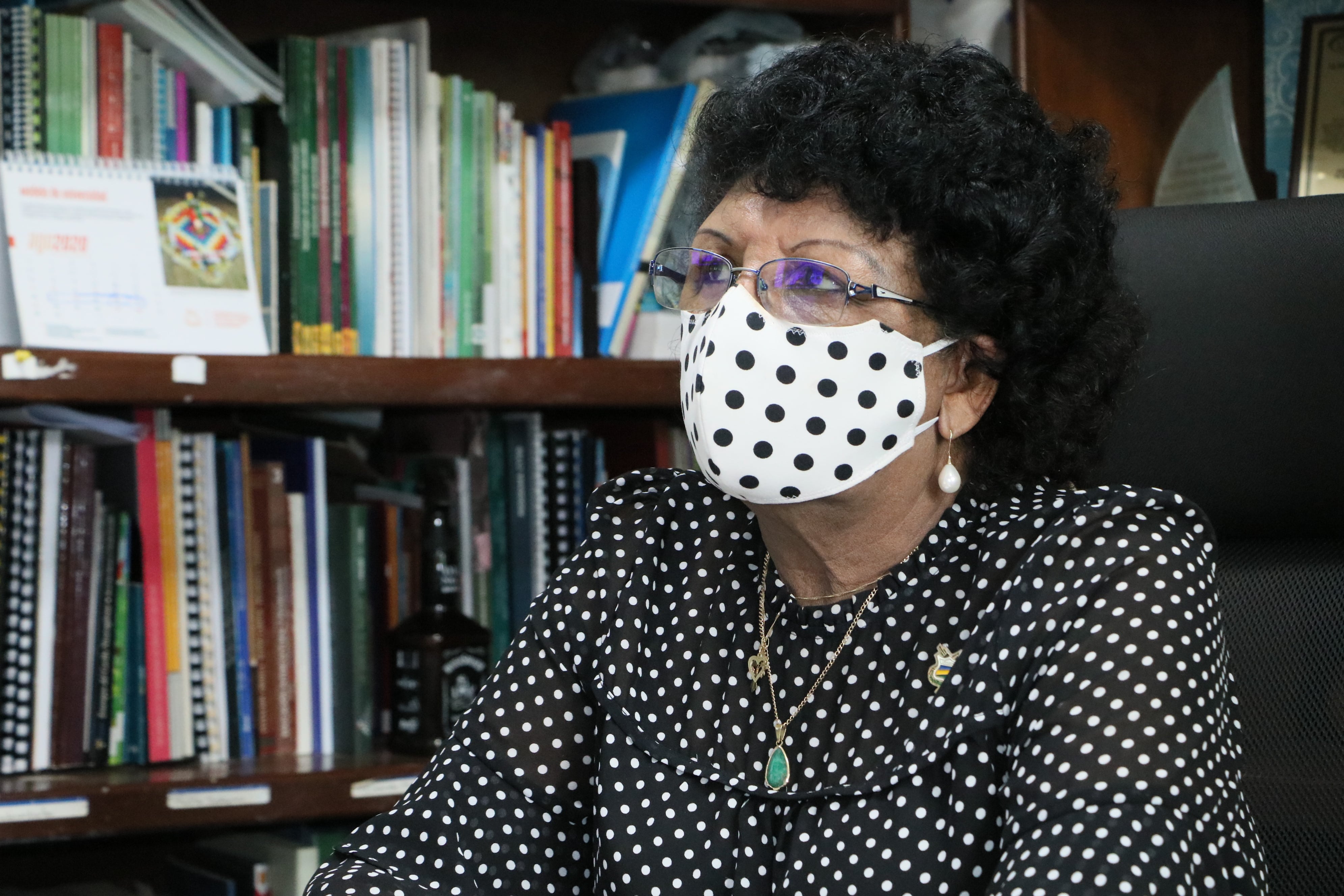
"While Rector Alta Hooker stated that there is still no concrete answer to provide a solution to this situation, there are approaches and analyses that make these issues visible to take steps on outcomes that strengthen education."
African and Afro-descendant leaders socialized, dialogued and shared feelings, knowledge and doings through a virtual forum convened and organized by Cabo Kairós, an organization committed to educational development and quality, which was moderated by URACCAN Rector Dr. Alta Hooker. The initiative consisted of analyzing the challenges faced by the STUDY in the face of the COVID-19 pandemic and seeking alternatives to achieve quality and accessible education in this very complex context.
The forum is named "The Challenges of Education in Africa and the Need for a Third Social Contract for Education", which was attended by Tawana Kupe, vice-chancellor of the University of Pretoria, South Africa; Charles A. Igwe, vice-chancellor of the University of Nigeria; Tamala Kambikambi, Deputy Vice-Chancellor, University Zambia, Zambia; and Ahmadou Mbaye, rector of Cheikh Anta Diop University, Senegal; as well as kairós coordinator Ing. Telemaco Talavera, who welcomed the forum, which concluded with the words of the award-winning speaker, Mr. Richard Gerver.
"All this is being done during the context of COVID-19, which has caused a number of ruptures everywhere. What was done now was a meeting with African universities, which told their experience of how they are coping with this situation, (especially in) how to move from regular to virtual education, when the situation was not given for that," said Dr Hooker, who also emphasized in the example of the African continent, that being a place with few economic opportunities , is creating a path for its own development.
One of the approaches in this forum has been that African universities do not prevent the integration of anyone, aware that not everyone has the same opportunities. In this sense, it was done to analyze what to do to prepare to receive the student, who faces a new social reality and that even the challenges to living with this disease are a utopia.
Likewise, there was talk about the little interaction that the virtual modality has between the student, who has impacted on good cultural coexistence and which also limits the relationship, coexistence and social exchange. "She said - Tamala Kambikambi - you lose that articulation of that diversity which is a much more harmonious way of doing things. All that space is lost within virtuality and what is strengthened is individuality," said rector Alta Hooker.
Although the rector stated that there is not yet a concrete answer to provide a solution to this situation, there are approaches and analyses that make these problems visible, to give way to results that strengthen education in times of pandemic. So, in this important space of exchange and dialogue, it was concluded that everything that is being discussed and analyzed should be done from its context and that the changes to be made respond to the needs of its own space.
The rector anticipated that URACCAN, as coordinator of the Network of Intercultural and Community Indigenous Universities of Abya Yala (RUIICAY), together with Kairós prepare, by 17 September, another virtual forum to analyze what type of education this network aspires to, and the effects that COVID-19 has had on educational development at RUIICAY.
- Log in to post comments
- 57 views
